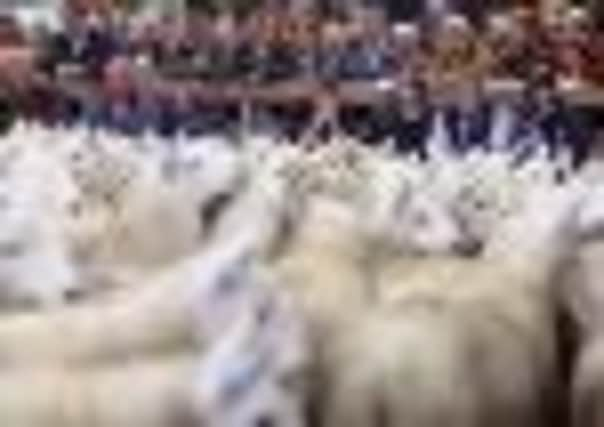Support is vital to preserve livestock industry


The future of Scotland’s meat and livestock chain depends on it, Alan McNaughton, president of the Scottish Association of Meat Wholesalers (SAMW), says in an end-of-year message to the industry.
In a call clearly aimed at political leaders in Scotland, Westminster and Brussels, McNaughton, director of the Vion-owned McIntosh Donald red meat business at Portlethen, Aberdeen, insists there are “powerful reasons” to justify increased support for calf and lamb production.
Advertisement
Hide AdAdvertisement
Hide AdHis plea comes at a time when negotiations on the reform of the Common Agricultural Policy (CAP) are reaching a critical stage, with the European Commission intent on continuing the policy of phasing out direct production support and the UK government seeking a reduction in the European budget.
“The reduction in the national cattle herd and sheep flock is a massive negative for Scotland’s meat industry,” says McNaughton. “It is adding to the sector’s unit costs and depriving the whole country of valuable jobs and income at a time when just about every other industry would love to have our market opportunities both at home and abroad.”
The past year has seen a series of abattoir closures and reduced profits from meat companies in the face of rising cattle and sheep prices – although lamb prices have fallen in recent months – and reduced consumer spending.
However, meat wholesalers say increased supplies of store cattle and lambs are required to maintain critical mass in the slaughter industry and exploit the marketing opportunities of the Scotch brand.
McNaughton makes the point that Scotland has the natural resources for beef and lamb production served by a top-class production, processing and marketing chain.
“Unfortunately, the mistakes in the last reform of the CAP in 2003, which we warned about at the time, have resulted in a steady erosion of livestock supplies, leading to missed sales opportunities, company closure and a substantial amount of lost business for Scotland,” he says.
SAMW has been urging government leaders to ensure the current CAP reform includes special measures for Scottish livestock producers.
“We’re not asking for financial aid to keep livestock producers and meat companies in business, or seeking support for an industry which is failing or unprofitable,” McNaughton stresses.
Advertisement
Hide AdAdvertisement
Hide Ad“But we are asking politicians to invest in a sector of the economy which has the capacity to repay such confidence many times over in terms of reduced spending on imported meat, increased earnings from meat exports and a serious commitment to long-term meat sector jobs.”
McNaughton also points to the contribution livestock farming makes to improving the environment, particularly in upland areas, and suggests that leaving the industry to the mercy of market forces, will simply export Scotland’s beef and lamb business.
“The UK would then be forced to import the end products we could, and should, be producing at home,” he warns. “We will be seeking to drive this message home in 2013.”
Tesco has announced plans to underwrite returns to producers marketing their stock to McIntosh Donald in Scotland and St Merryn Foods in England and Wales. The supermarket is concerned about future supplies of beef following the decision of Dutch owner, Vion, to pull out of the UK. Vion’s Halls pork business at Broxburn is due to close with the loss of 1,700 jobs and the company has sold the rest of its pork business in a management buy-out backed by venture capitalist, Endless, which is also believed to be backing a similar arrangement for the poultry division. Both McIntosh Donald and St Merryn are up for sale.